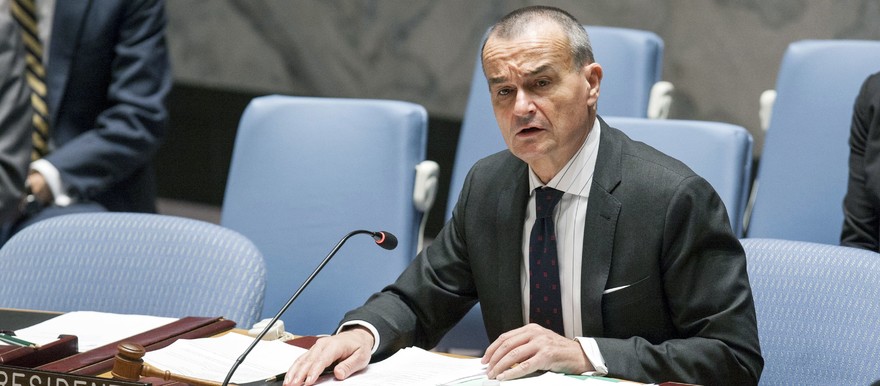Members of the UN Security Council who met yesterday in New York to discuss the situation in South Sudan are considering imposing sanctions on South Sudanese government and rebel leaders, with France and the United States appearing as the most vocal backers these proposed measures.
The Council also appears unlikely to consider shutting down the peacekeeping mission in South Sudan later this year – a demand that the South Sudanese government had hinted it would make.
The Security Council is the UN organ responsible for establishing peacekeeping missions. It has five permanent members – China, France, Russia, the United Kingdom and United States – and ten temporary, rotating members.
The Council also has powers to impose sanctions such as arms embargos, travel bans or economic sanction against states or individuals that it sees as threats to international security. Sanctions
Yesterday evening in New York the Council members were briefed by UN Assistant Secretary-General for human rights Ivan Simonovic. He told the council about the recent massacres in rebel-held Bentiu and the attack on the UN peacekeeping base in government-controlled Bor.
Hervé Ladsous, the head of the UN’s peacekeeping operations department, also briefed the council saying that South Sudanese leaders were intent on continuing the war.
“(The war) must stop immediately. Yet we see that neither party is ready to, in any way, cease the hostilities. The agreement on that which was signed exactly to this day three months ago has never been implemented. They do not give indication that they want to sincerely participate in the peace talks,” said Ladsous.
He urged “serious consequences” for spoilers to the peace process. He also suggested that the UN peacekeeping mission in the country “can’t cooperate” with the government any more.
“We are refining the mandate of UNMISS so we have also to face the fact that maybe we can’t cooperate with this government anymore because atrocities are committed by both sides,” Araud said.
He pointed out that the Status of Forces Agreement with the host government has been violated many times.
Sanctions discussion
Security Council president Nigerian Ambassador Joy Ogwu told reporters the Council discussed sanctions. She said several Council members suggested the “principle of deterrence” to send an unequivocal message to the parties responsible for the violence that it must not happen again.
For his part, French Ambassador Gérard Araud said the 15-nation Council should consider imposing sanctions, because the situation is “horrendous,” Voice of America reported
“I think we are ready to go down the road of sanctions,” the French ambassador said.
The US government, for its part, has already authorized its own national sanctions against the South Sudanese leaders, but not yet named individuals to be targeted by them. The country’s UN ambassador, Samantha Power, made remarks after the meeting supporting UN sanctions as well.
Reports from New York yesterday also suggest that the UN peacekeeping department and Security Council are unwilling to consider drawing down the peacekeeping mission after July, when the UNMISS mandate expires.
South Sudanese officials have lashed out at the mission saying they will review the Status of Forces Agreement and potentially not renew it beyond July.
But the UN Secretariat has made plans for the ceiling number of troops and police detailed to the peacekeeping mission to be kept in place for at least an additional year, the news site What’s in Blue reported.
File photo: French Ambassador Gérard Araud



